Hong Kong Literature in Taiwan|Hong Kong's Second-Story Bookshop Culture|Important moments of Hong Kong literature|Stories of Hong Kong Literature
Despite the relatively short geographical distance between Taiwan and Hong Kong, Hong Kong's authors and literary works remain unfamiliar to most Taiwanese readers.
Nonetheless, Hong Kong and Taiwan share a longstanding connection in terms of Hong Kong’s influence on Taiwan’s literary community and its contributions to domestic literary journals and other periodicals. In addition to the evidence of Hong Kong works being read and shared in Taiwan, the literary “flavors” of Hong Kong are woven throughout our own literary traditions and trends.
Hong Kong Literature in Taiwan
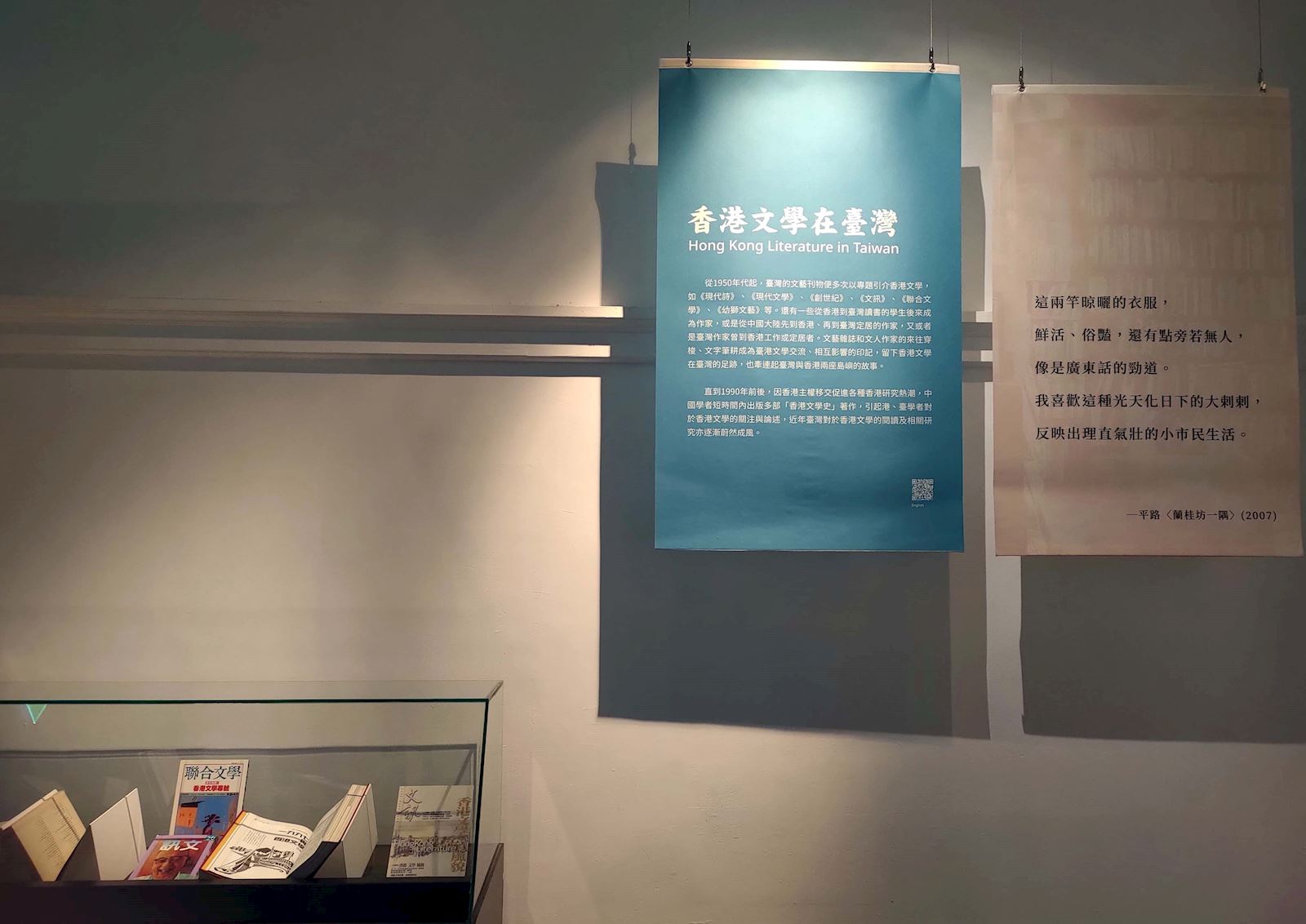
These two poles of clothing are bright and gaudy, somewhat oblivious of others, just like the power of Cantonese. I like such pompousness in broad daylight, reflecting the bold and straightforward life of ordinary people.
── Ping Lu, A corner in Lan Kwai Fong (2007)
Beginning from the 1950s, Taiwan literary publications such as Modern Poetry, Modern Literature, Epoch Poetry Quarterly, Wenhsun, Unitas, and Youth Literary have long welcomed and published literature by Hong Kong authors. Also, Hong Kong authors have been students in Taiwan, Mainland Chinese authors have settled in Taiwan after first living in Hong Kong, and Taiwanese authors have lived and worked in Hong Kong. The vibrant, mutual exchange of literary publications and authors have indelibly influenced the literary landscapes of both, giving Hong Kong literature a not-insignificant role in shaping the course of Taiwanese literature and interlinking the stories of both Taiwan and Hong Kong.
Around 1990, Hong Kong's impending return to China sparked renewed interest in Hong Kong-related studies worldwide. The many works covering the history of Hong Kong literature published by China-based scholars during this time attracted widespread attention and discussion among scholars in Hong Kong and Taiwan and revived interest in Hong Kong literature among both readers and researchers.
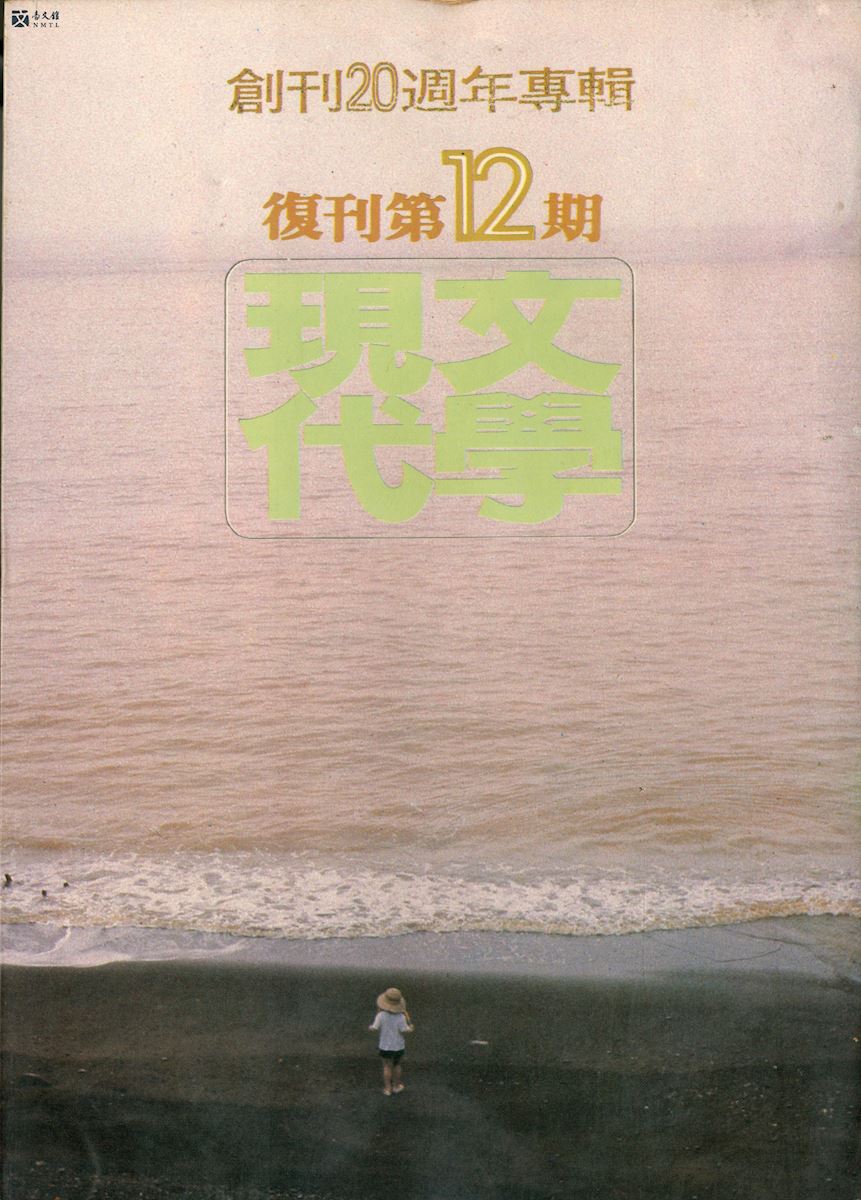
▲ “Modern Literature” Reissue 12 “Hong Kong Modern Poetry Collection” / November 1980
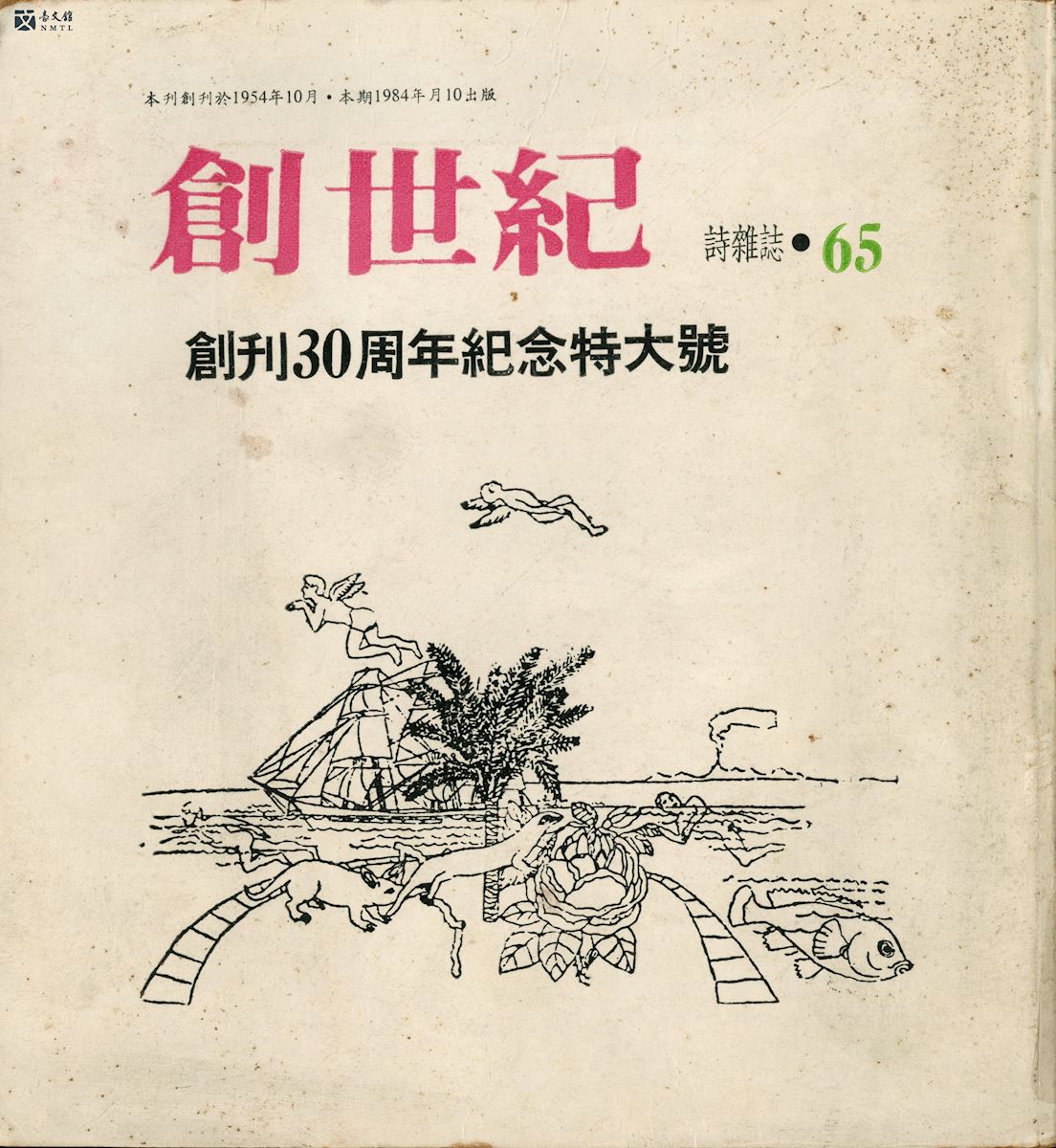
▲ “The Epoch Poetry Quarterly” Special Issue 65 “Hong Kong Modern Poetry in the 1980s” / October 1984
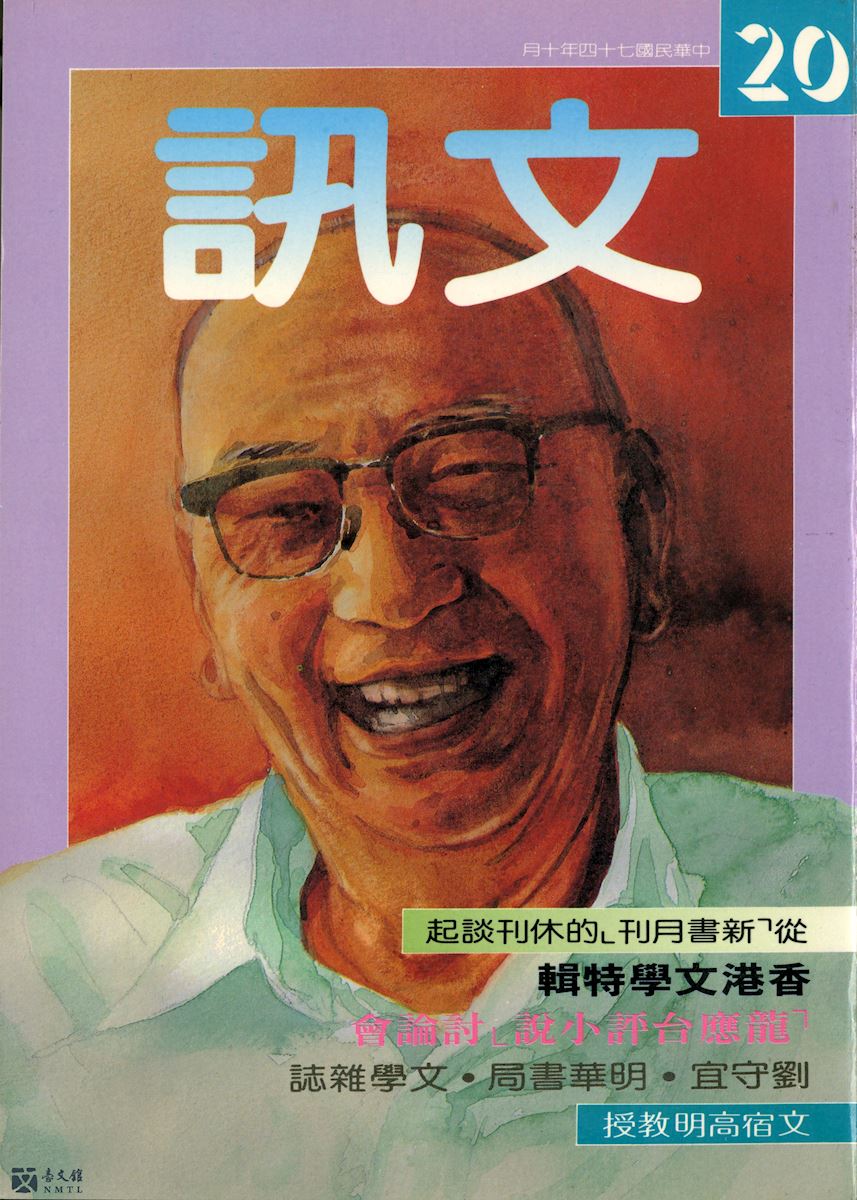
▲ “Wenxun” Issue 20 “Hong Kong Literature Special” / October 1985
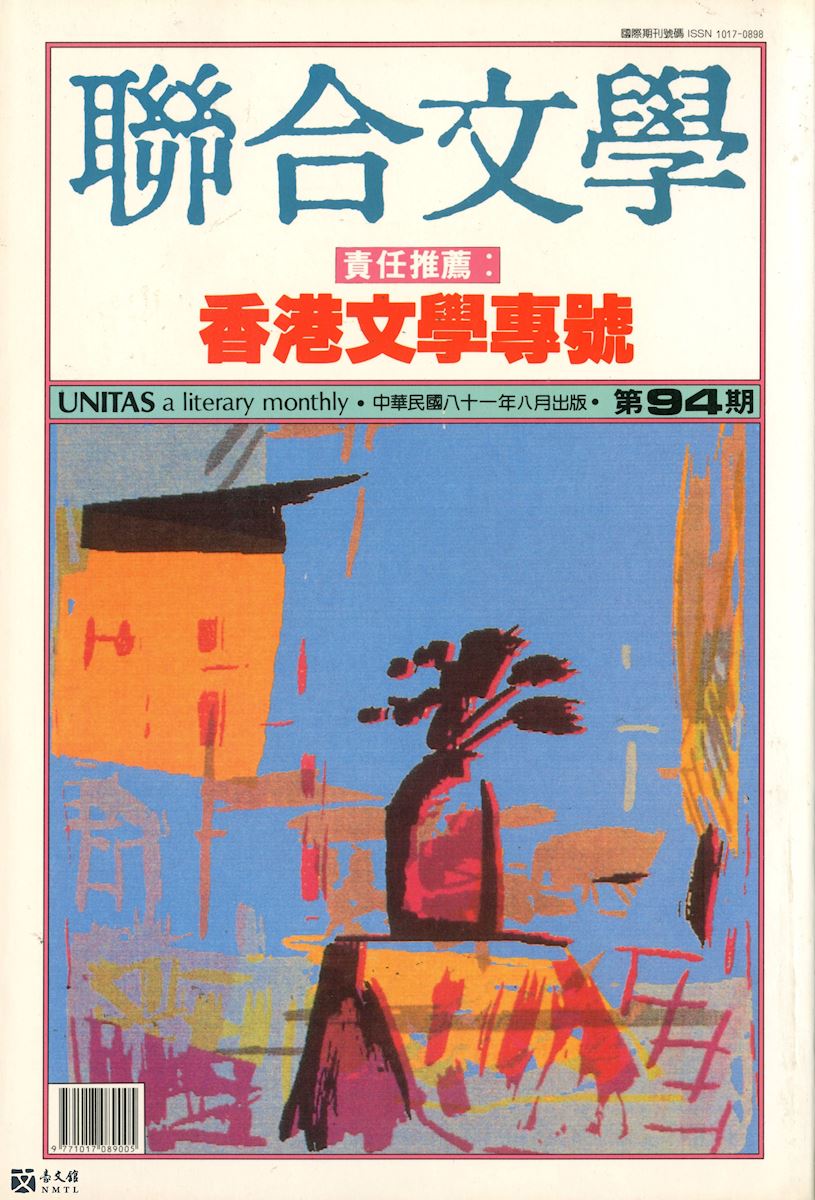
▲ The 94th Issue of Unitas Literary Monthly, Hong Kong Literature Special Issue.
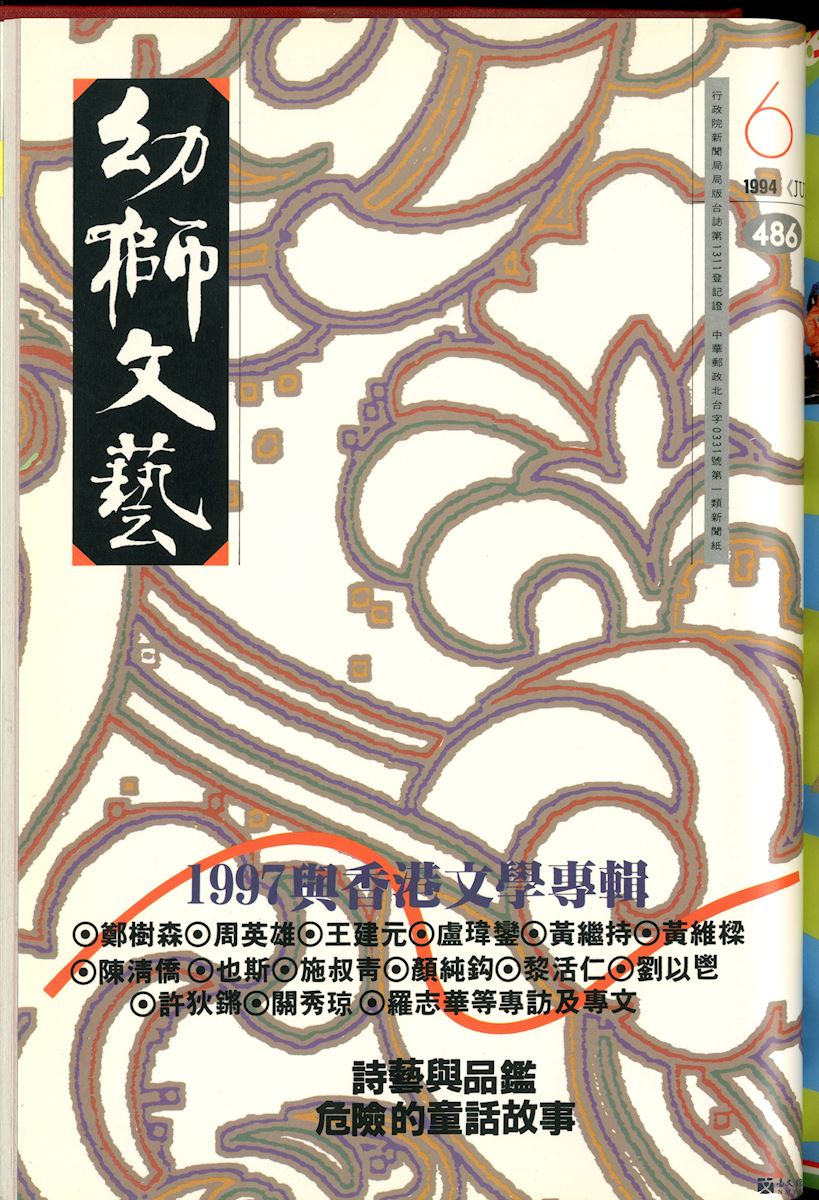
▲ “Young Lions Literature” Issue 486 “1997 and Hong Kong Literature Collection” / June 1994
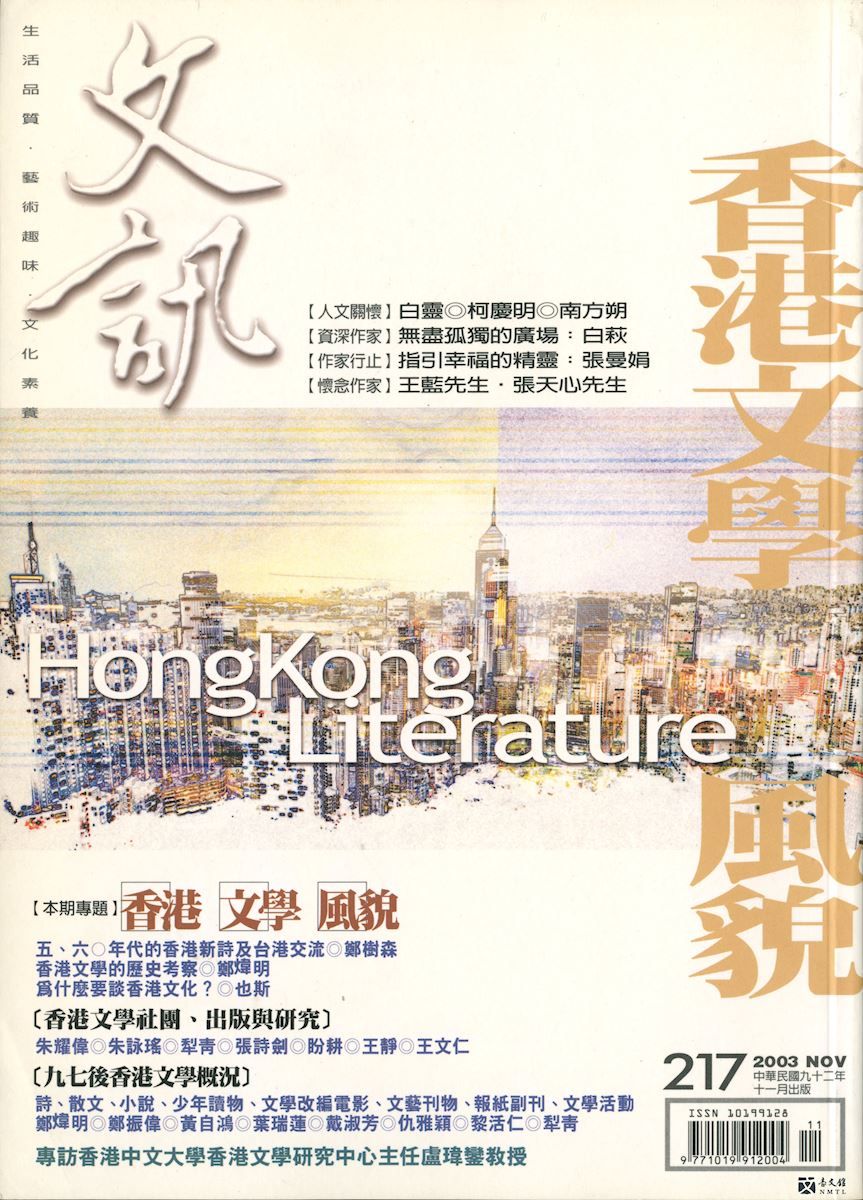
▲ “Wenxun” Issue 217 “Hong Kong Literature Landscape” / November 2003
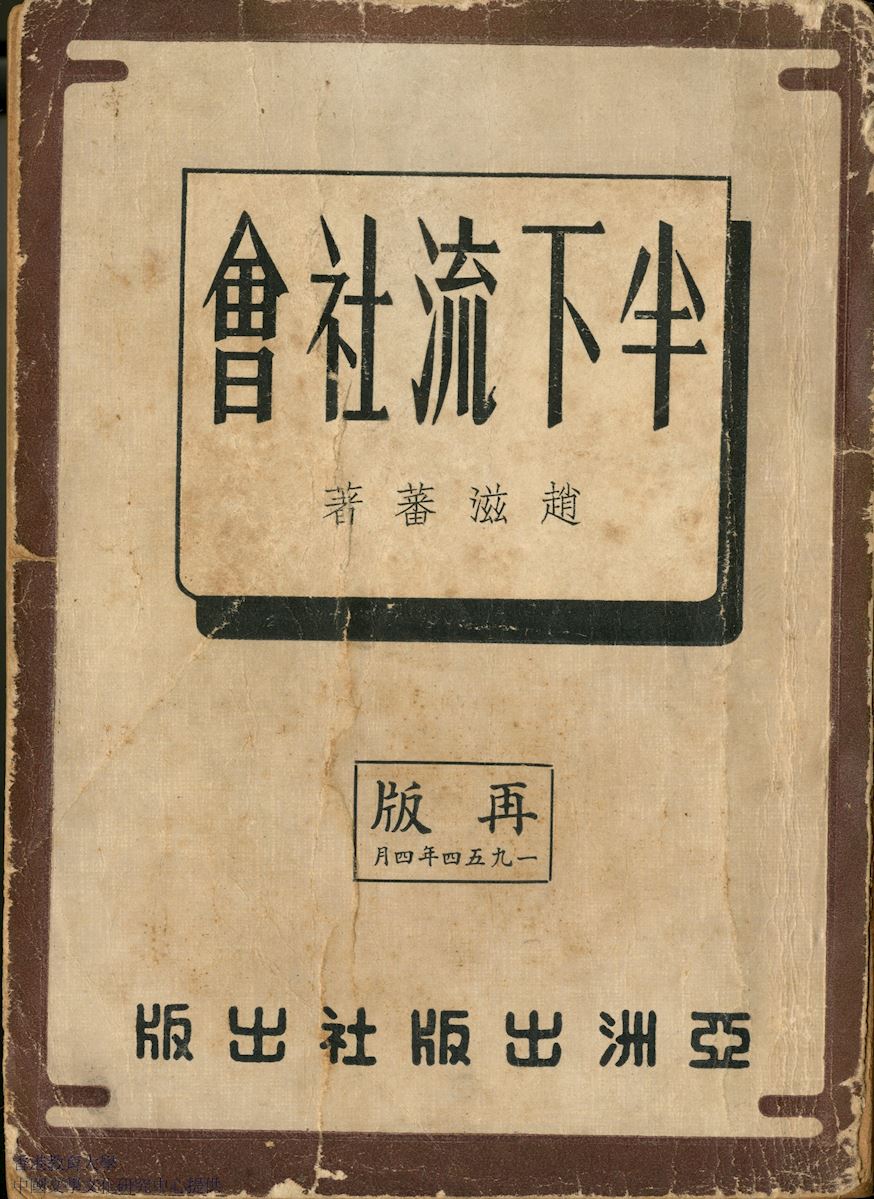
▲ Chao Tzu-Fan “Struggle of Humanism” / Hong Kong: Asian Publisher / 1954
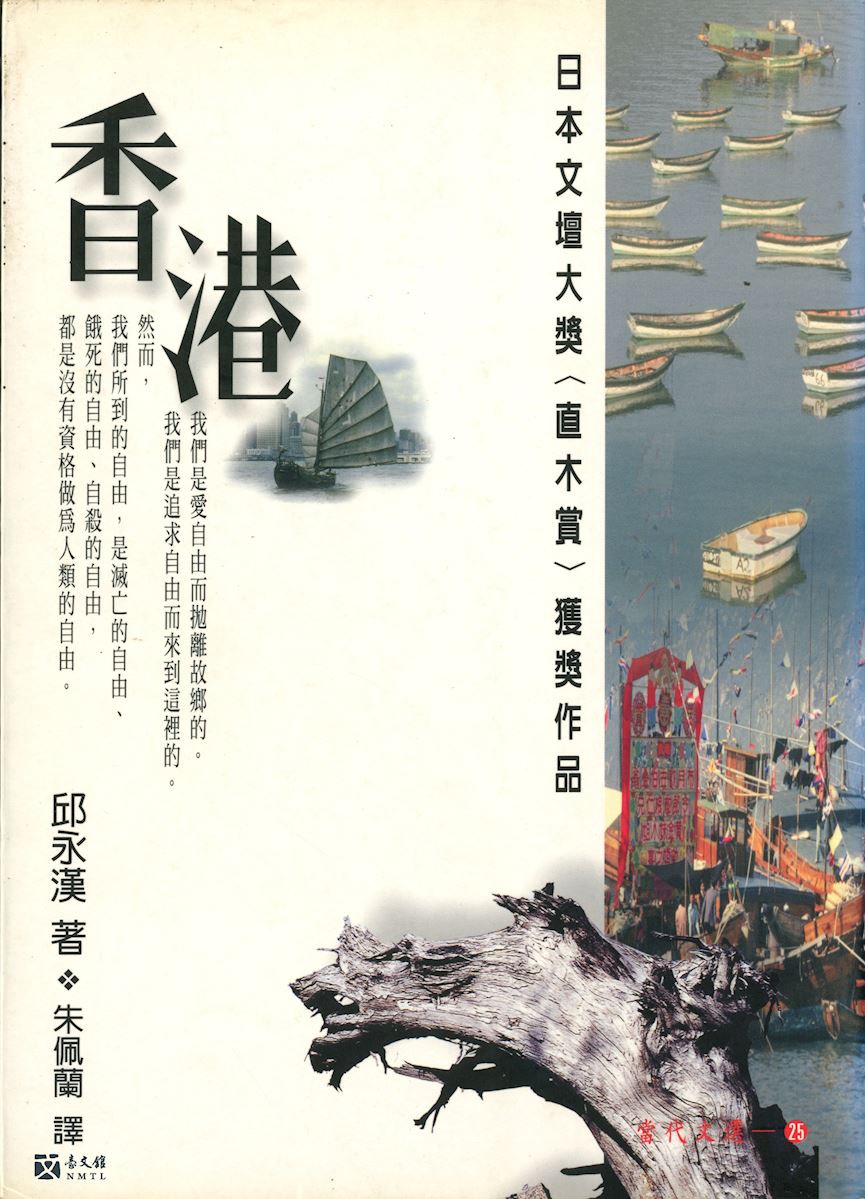
▲ Written by Eikan Kyu, translated by Zhu Pei-Lan, “Hong Kong” / Taipei: published by Asian Culture / 1996
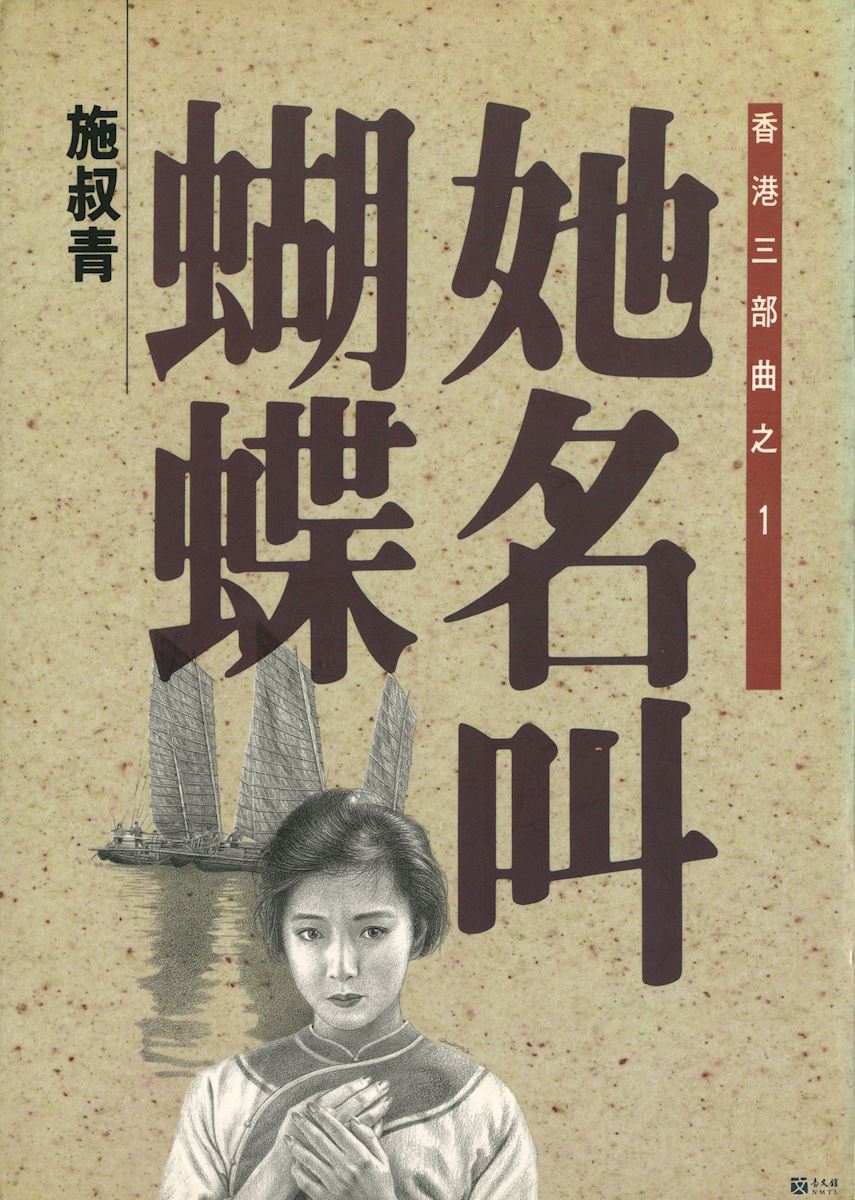
▲ Shi Shuqing “Her Name Is Butterfly” / Taipei: Hong Fan Bookstore / 1993
.jpg)
▲ Tsai Chu Erh's Wonton City.
Hong Kong's Second-Story Bookshop Culture
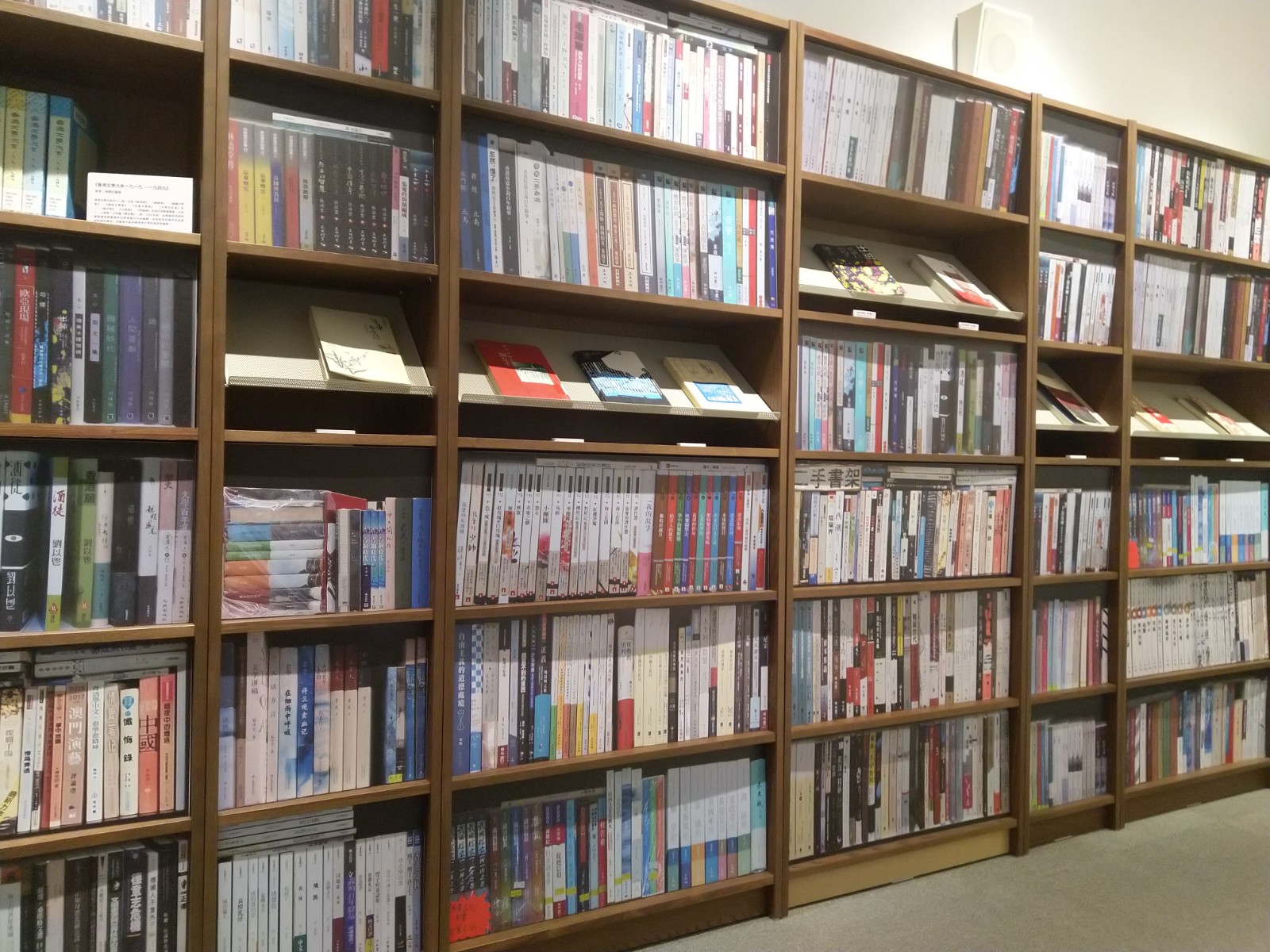
Second-story bookshops are a unique fixture of Hong Kong's cultural landscape. As implied by the name, second-story bookshops operate one floor above street level. Due to Hong Kong's famously high rental fees, few booksellers outside of the major chains can afford to lease ground-floor storefronts, leaving smaller and 'indie' bookshops to rent cheaper accommodations higher up. Older buildings and buildings located off the city's bustling commercial thoroughfares typically offer the most reasonable rental rates, and are thus most sought after by low-margin bookshop proprietors.
Causeway Bay Books, an indie bookseller familiar to many Taiwanese, is one of Hong Kong's better-known 'second-story' bookshops. Traditionally known for selling books that were banned in Mainland China, local reprints, and at the avant-garde forefront of literature and the arts, second-story bookshops today, squeezed by shrinking revenues, rising rents, and controls on permitted speech, have increasingly been either closing down or diversifying into other lines of business.
Important moments of Hong Kong literature
1997
July, the sovereignty over Hong Kong was officially transferred to the People's Republic of China, and the Hong Kong Special Administrative Region was set up.
1999
August, Chan Koonchung's Nothing happened (什麼都沒有發生) was published. His calm but slightly sarcastic writing style became a sharp contrast to the atmosphere of celebration created by the authority after the "Handover".
2003
February to June, the severe acute respiratory syndrome (SARS) broke out in Hong Kong, which was the most severe epidemic in Hong Kong in recent years.
The draft legislation of Article 4 of the "Basic Law of the Hong Kong Special Administrative Region of the People's Republic of China" triggered the 1st of July marches, where more than 500 thousand people took to the streets.
2008
February, the owner of the Youth Literary Book Store, Law Chi-wah, went missing and died from an accident, arousing the public's attention to his contribution to Hong Kong culture.
2014
June, China published the white paper, "The Practice of the 'One Country, Two Systems' Policy in the Hong Kong Special Administrative Region", which triggered the Occupy Central and the Umbrella Movement.
2014 to 2016, the first stage of the Compendium of Hong Kong Literature was published in 12 volumes, marking an important milestone in the construction of the literary history of Hong Kong.
2019
The government put forward the "Fugitive Offenders and Mutual Legal Assistance in Criminal Matters Legislation (Amendment) Bill 2019", which triggered the anti-extradition movement that lasted for months.
2097
In Dung Kai-cheung's novel, Histories of Time, Light of Matte Porcelain (時間繁史・啞瓷之光), the fictional time, an apocalypse with the arrival of the Great Flood, and a hundred years after the handover, question the possibilities of the continuity of Hong Kong's literature and history.
Stories of Hong Kong Literature
Q:Japanese literary award, "Naoki Prize", was awarded to a foreigner for the first time, for the work, Hong Kong, and the writer is actually a stock market tycoon born in Tainan?
A:
You might have heard of "Eikan School" and "Wealth Magazine", but you may not know about the founder's dramatic life. Eikan Kyū was born in 1924 in Tainan, a half-Japanese and half-Taiwanese. In 1948, he participated in Taiwan’s independence movement and was monitored and an warrant arrest was issued by the government. He fled to Hong Kong due to the White Terror, and migrated to Japan in 1954.
Eikan Kyū was a literary youth during his days in Taihoku High School. He started the magazine, Yue Lai Xiang, joined Taiwan Literary Association, and published his works in literary magazines, Gorgeous Island and Literary Taiwan, hosted by Mitsuru Nishikawa. After arriving in Japan, he published Zhuo Shui River, and was nominated for the Naoki Prize. In 1955, he wrote about his own experiences and those in Hong Kong in Hong Kong, which won him the Naoki Prize, a prestigious Japanese literary award, making him the first non-Japanese award winner.
Later, to make a living, he devoted himself to the stock market and real estate, which made him rich and earned him the name, "Stock God". In the 1970s, he started investing in Taiwan and became a well-known entrepreneur in Taiwan and Japan. From literary creation to fleeing due to political concerns, and from a writer to an entrepreneur, Eikan Kyū's life has become a legend in the literary histories of Taiwan and Hong Kong.








